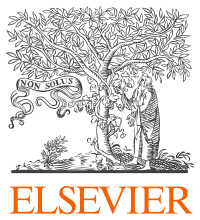Elsevier Science
 |
|
| Industry | Information and Analytics |
|---|---|
| Founded | 1880 |
| Headquarters | Amsterdam, Netherlands |
| Revenue | £2.070 billion (2015) |
| Parent | RELX Group |
| Website | Official website |
Elsevier (Dutch pronunciation: [ˈɛlzəviːr]) is one of the world's major providers of scientific, technical, and medical information, and a technology company originally established in 1880. It is now a part of the RELX Group, known until 2015 as Reed Elsevier. Its products include journals such as The Lancet and Cell, the ScienceDirect collection of electronic journals, the Trends and Current Opinion series of journals, and the online citation database Scopus.
Elsevier publishes approximately 400,000 articles annually in 2,500 journals. Its archives contain over 13 million documents and 30,000 e-books. Total yearly downloads amount to 900 million.
Elsevier's high profit margins (37% in 2015) and its copyright practices have subjected it to criticism by researchers.
Elsevier was founded in 1880 and took the name from the Dutch publishing house Elzevir which has no connection with the present company. The Elzevir family operated as booksellers and publishers in the Netherlands; the founder, Lodewijk Elzevir (1542–1617), lived in Leiden and established the business in 1580.
The expansion of Elsevier in the scientific field after 1945 was funded with the profits of the newsweekly Elsevier, which first issue appeared on 27 October 1945. The weekly was an instant success and earned lots of money. The weekly was a continuation, as is stated in its first issue, of the monthly Elsevier, which was founded in 1891 to promote the name of the publishing house and had to stop publication in December 1940 because of the Nazi occupation.
In 1947, Elsevier began publishing its first English-language journal, Biochimica et Biophysica Acta.
...
Wikipedia
